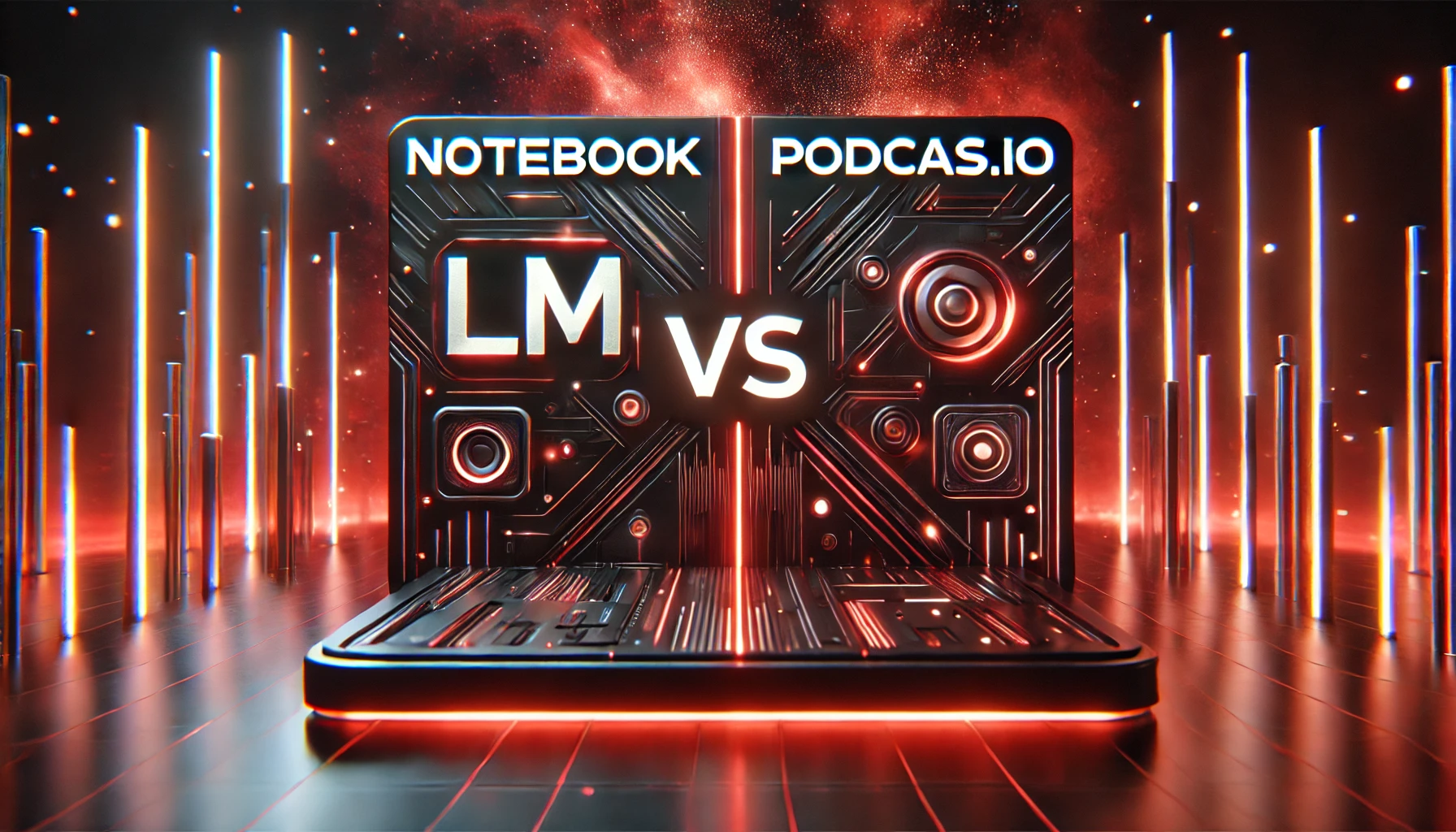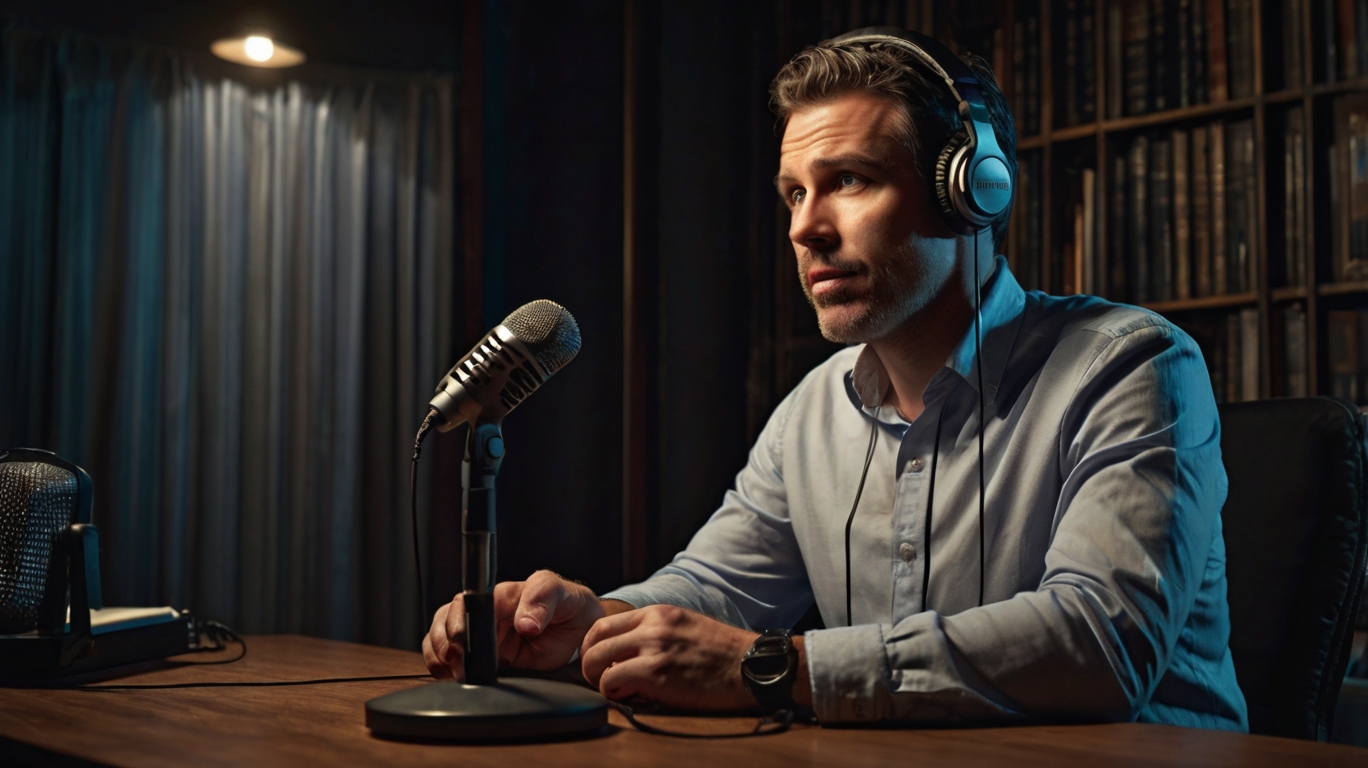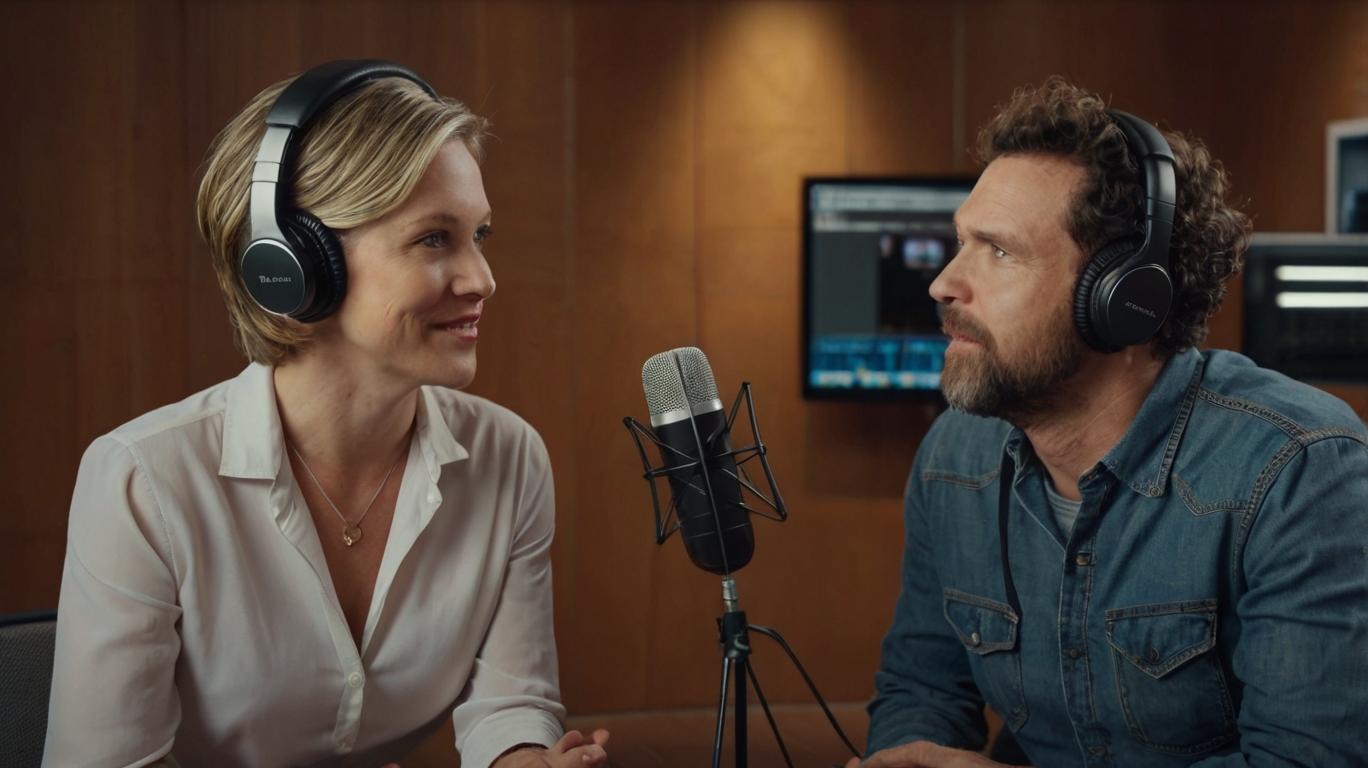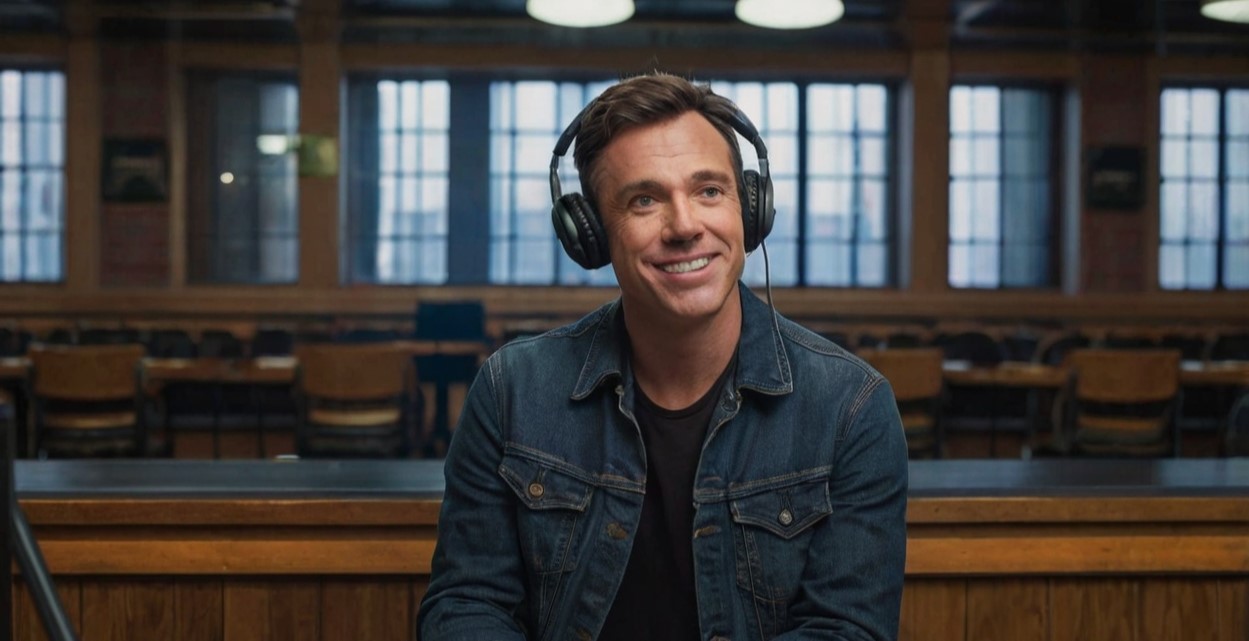Creating your first podcast has never been easier! With Podcas.io, you can generate and share professional-quality podcasts in just a few steps. Follow this guide to get started today.
Step 1: Create an Account
Start by visiting Podcas.io and selecting the Sign In button. If you’re new, click on Sign Up to create your account. You can sign up using your Google account, making the process super simple.
Best of all, no credit card information is required upfront. Once signed up, you’ll automatically get access to 5,000 characters per month and three unique voice options—all for free!
Step 2: Craft Your Podcast Topic
After logging in, click on Create a Podcast to begin.
Click on PodcastsAI in your profile, then clikc on a Create a Podcast.
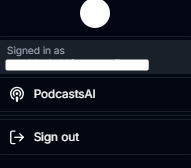
You’ll be asked to provide the following details:
- What’s your podcast about? – Describe the main theme or purpose of your podcast.
- Website URL – Add a link for additional supporting information or use this to transform an existing article into a podcast.
- Prompt/Topic for the podcast – Include specific points or comments to guide the content creation. Provide as many details as possible to get an accurate podcast. Things you can include:
- Tone of voice
- Who the characters are
- Topic of discussion
- Context to the link shared
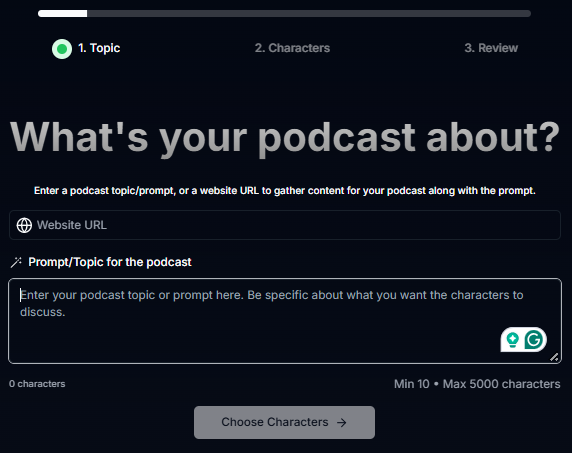
This step helps you structure your podcast and ensures it aligns with your vision.
Step 3: Decide Your Podcast Hosts
Next, select the hosts for your podcast. Choose a voice and persona to bring your content to life. Free users can pick from three distinct voices, while Starter and Pro users can access a library of over 1,000 voices. Whether you want a conversational, humorous, or formal tone, Podcas.io has options to fit your style.
Then give them a persona. What are their names? Are they regular podcast hosts? Are they guests who are specialists in a specific industry?
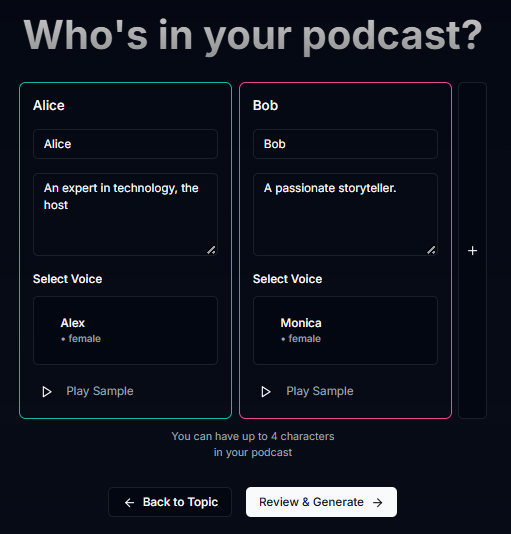
Step 4: Click Generate
Once everything is set, click Review & Generate and let Podcas.io do the magic. Within moments, your podcast will be ready for review.
Step 5: Refine and Share
If you want to enhance your podcast, you can edit the script directly within the platform. You can also request for more dialogue to be added. Then regenerate the improved version!

Once satisfied, it’s time to share it with the world!
Podcas.io automatically generates a professional thumbnail and video format for your podcast. You can download and share your podcast in audio or video formats. Embed options are also available, making it easy to post on your website or social media platforms.
Start Your Podcast Journey Today
With Podcas.io, creating a podcast is as simple as these five steps. Whether you’re starting a passion project or building a brand, Podcas.io provides the tools you need to succeed. Try it now and bring your podcast ideas to life!


